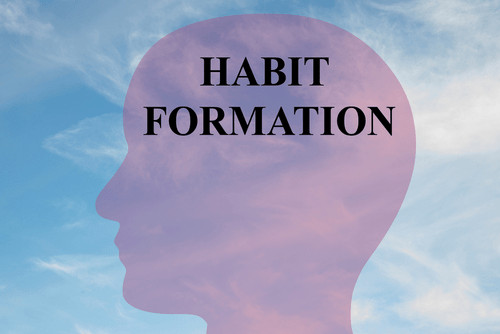- in Blog , Observations by David Wilkinson
- |
- 5 comments
At what point can you say you have learned something?

“I learned something today…” Did you really? Like really learned it?
We often take the idea of learning and having learned for granted and frequently make a series of rather large and unquestioned assumptions about at what point we can actually say someone has learned something. The evaluation of learning in many organisations, including our universities and colleges, is frequently inadequate and does not really measure or describe what many certifications and records of learning suggest they are certifying. This critical article looks at what it actually means to have ‘learned’.
What does having learned mean?
One of the questions I often ask my students (who are usually university lecturing staff) is:
“At what point can you say you have learned something?”
The answers are always revealing. They tend to include:
“When you can repeat it”
“When you understand it”
“When you can explain it others”
“When you can do something with it”
This question is one that is not asked enough, especially in organisations. I see “learning events” (workshops, training events, coaching, seminars, online learning etc.) being provided with little or no idea about what the aim is in terms of learning beyond some vague exposure to content.
Sure the ‘learning’ events all have outcomes or objectives, but deeper than that.
Just what are your objectives or learning outcomes actually saying?
What are we trying to achieve here with learning?
Be impressively well-informed

Get your FREE organizational and people development research briefings, infographics, video research briefings, a free copy of The Oxford Review and more...
Be impressively well-informed and up-to-date
Deeper than that
When you look at most learning systems (and I include school and university as learning systems) they don’t appear to be set up with an idea of what having learned means.
There appears to be a broad set of assumptions behind the way much learning and development is carried out in organisations, that if you expose people to something they will ‘learn’ it. I see this particularly in some of the workshops I witness and I am frequently asked for in many organisations.
The exposure to content = learning myth
When you look at many learning events there is an implicit assumption that attendance = learning. Beyond the ubiquitous happy sheet type evaluation at the end of an event there is usually no real effort to find out if ‘learning’ has actually taken place, if they have learned.
However, before we start looking at describing/measuring learning it might be an idea that we answer the initial question. At what point can we say we have learned something?
There are a number of issues we need to answer in order to arrive at the answer to the core question.
Permanence of learning
The first issue is to do with permanence. How long should they retain the learning?
Is an hour enough?
Well if it is just a ‘copy and paste’ exercise of remembering a phone number while you dial it and you won’t need it again then possibly yes. But could you really say you had ‘learned’ the number?
If we do accept (in part at least) that the answer to when we have learned something is to do with retention, i.e.we have learned something if we can remember it, then the next question is surely yes but for how long?
An interesting study a few years ago1 found that students on an introductory psychology course knew only 8% more than a control group, four months after the course. Further research2 has found similar worrying figures. Think about any exams you have sat in your life. Unless you have just finished revising for that exam or have a photographic memory, would you pass that exam now? Most people realise the answer is no, and certainly if I was put in front of many of the exams I have qualifications for, I would struggle to get even elementary pass marks.
Old school
Not so long ago I found some of my old school books. The French and maths exercise books were particularly revealing. Not only could I not remember the material, but I have no memory of ever having being that proficient in those subjects!
Given this can I really say I had learned the material?
It kind of makes you wonder what many exams are actually for.
One answer is to the question at what point can you say you have learned something?, is therefore – it depends. It depends on the context and purpose of the learning3. If I just need to retain the information for a day and thats all I do, then I suppose given that context, I have learned it and then forgotten it. That is fine as that was the purpose. You just need to be clear that was the purpose. Clarity of learning outcome is something most organisations shy away from.
And yet I have never seen a time frame put on exams and training courses, workshops and coaching. Just an assumption of learning at the point of the test or exam is made with no thought or interest in the process afterwards.
The learning something and forgetting it makes later learning easier myth
The next comment I frequently get is, ah but you may not remember but it makes learning it later a lot easier. Even if you don’t remember the detail you will have the structure in there.
Sounds plausible but is it true?
Not only is there no evidence for this assertion at all4, we are actually inherently biased when we think about what we have retained and forgotten anyway5.
The Forgetting Bias Effect
The forgetting bias effect4,5,6, a bias where we assume that what we have forgotten is unimportant and is largely the material we haven’t activated and used. The secondary assumption of the forgetting bias effect is that what we remember is what we use the most and is therefore the useful and important stuff. This feeling we have that we only forget the unimportant and unused stuff is, it appears, largely what the scientists call a meta cognitive illusion6. It isn’t true.
Use it or lose it – not quite
Now obviously, things that we work on frequently are much more likely to be retained … or so we think. It turns out that what we actually retain are our unique, individual and very changeable memories. A series of studies6 in the 1990’s with 148 university students found that the retrieval process in examinations for example, itself causes long-lasting forgetting, not strengthening of the memories as we would expect.
What actually happens is that we construct a version of what we use, including all the short cuts and (bad) habits we create. From there we build a personal version of what do do and practice.
A series of new studies are showing that when we learn something cognitive (memory) the context of that memory is stored with the memory and that recall is more difficult in a different context. So if we learn in a classroom or a library (remember those?) recall is significantly better and more complete in that context and more difficult in a different context like in a work context for example 7. In effect classroom based learning does not automatically transfer to the workplace. Our recall tends to be heavily dependent on the context within which the learning took place. This is one factor for the poor transfer to workplace of most learning and coaching events.
Learning = retrieval hypothesis
Its not looking good for the retrieval hypothesis that we have learned when / if we can remember the item if
a) we are likely to forget it in a short space of time,
b) the recalling stuff for an exam actually speeds up forgetting, and
c) learning out of the context it needs to be remembered in, makes remembering it much harder.
Learning to forget?
No I think having learned something only to forget it isn’t a very satisfactory definition of having learned. Unless that was part of the initial plan. At best we can say that it was incomplete learning. It didn’t stand the test of time.
What I am hinting at here (and a not very subtle hint at that) is that to have truely said to have learned something we need to have access to it a bit longer than a few days or weeks.
Some level of permanence therefore is a requirement of having learned.
Different modes of learning – more than just cognitive
So far we have just been looking at one system of learning, the cognitive memory system. Human learning is however much more than cognitive recall. We now know that we have a number of different learning systems.
There is certainly very good evidence that each of the 5 major senses:
- Sight (vision),
- Hearing (audition),
- Taste (gustation),
- Smell (olfaction), and
- Touch (somatosensation)
each have their own learning systems.
However we also know that there are many other senses each with their own systems of learning, for example
- Temperature or thermoception,
- Kinesthetic sense or physical Psychomotor skills known as proprioception,
- Pain or nociception,
- Balance or equilibrioception,
- Vibration or mechanoreception,
and various internal stimuli (e.g. the different chemoreceptors for detecting salt and carbon dioxide concentrations in the blood) for example, all have effective learning and memory systems, and that all of these systems have what is known as plasticity or adaptability. They can learn, unlearn and change.
Affective learning
Not only that but there are also affective or emotional systems that appear to connect to our values and belief systems that also learn, adapt, and change. Affective learning, I would argue, is the big untapped and most powerful learning process, however more of that later.
Thinking like this helps
This may feel / look / sound like it is all getting a bit complicated but actually thinking like this helps.
What we are really talking here, when we are thinking about learning is really one thing – change.
Learning, regardless of the system is about change.
If learning means change then having learned must mean having changed, or stability. It has happened and it is now stable.
Change and stability
Learning suggests change and having learned suggests no change, the learning has happened therefore the change has taken place.
Maybe, just maybe, all these evaluations that go on after a course should be evaluating change. What are people doing, thinking, feeling that is different than before the learning process (note I say process not event). Learning is rarely a single event, rather a series of events strung together in a process.
Characterisation
One of the great thinkers in this area, Benjamin Bloom9 referred to the having learned as characterisation 10. What this means is that the learning is now part of who we are.
We just do whatever it was that we were learning but now we don’t need to think about it, with no attention needing to be paid to it. It is just part of who I am.
It is in effect a habit.
Habit stacking
It’s how we learn. We take novel actions and adaptations and turn them into habits so that we can then stack the habits and free up valuable attenuational resources. Just consider the complex set of tasks and learning involved in learning to drive. At first you are taken somewhere safe like an airfield or car park as you learn the basic controls, as these become habituated you then move on to more complex manovers like negotiating city traffic for example. Pretty soon you drive around without thinking about it too much until something out of the ordinary occurs.
Up to the point of characterisations habituation, the point at which it just becomes part of who we are, we are still learning, we are still bringing it in and making it a habit.
Characterised or habituated change
This idea of characterised change as being the definition of having learned fits in with a wide range of thinking about learning. Often in organisations and even universities (not all though) the intention is not create change as opposed to a feat of memory long enough to regurgitate it an exam or test, or to produce a good feeling after a day out of work.
The idea of learning being about creating characterised change, building and forming new habits, habits of thinking, habits of doing and behaving and habits of feeling certainly makes evaluating many of the learning events that occur in organisations interesting.
How much change do these ‘learning’ events really create?
And not just any change but relatively stable fairly permanent change?
Now obviously there is an issue about creating permanent change. By perminant what do we mean? For all time? That wouldn’t be very desirable, useful, nor very adaptable in the face of external change.
So it appears we want stable permanent change, until that is, things change and then we want it not to be permanent.
At that point we want new change, we need to unlearn the old habits, the old ways of thinking, reacting and feeling, and learn new things or adapt and change the old stuff. That requires what is termed as reversal learning or unlearning the stuff of a different article.
The problem with understanding
The problem with using understanding as the definition of learning (someone has learned when they understand it) is what does it mean?
How can you tell when someone understands something? The issue here is that understanding is
- An internal process that you can’t see
- Subjective, and
- Referential
The first issue is that you can’t see an understanding. Its almost impossible to identify when someone understands something without the individual doing something like applying the learning from which we then make an inference of understanding. At best understanding is an inference or an assumption based on observations of other attributes like being able to do something. We would be better using that attribute rather than the inference.
The second issue with understanding is that it is usually subjective. Can you say a climate change denier doesn’t understand the issue? May be they do. They may just have a different understanding to someone who believes in climate change. This is a central issue about understanding. To say someone understands something has no direction. If however you are saying I want them to have my understanding then we may be in the territory of indoctrination.
Lastly understanding is pretty vague and referential. We ascribe understanding based on our own perspective. From one individual’s perspective they may say their colleague understands something, but from a professor’s point of view for instance they may well be seen as having a rudimentary understanding or a poor or even wrong understanding of the topic.
Understanding then is not a very useful term when considering learning or the point at which we have learned something.
Conclusion
So the answer to the question ‘at what point can we say someone has learned something appears to have a number of answers:
- The classical definition is characterisation – the point at which the learning has become part of the individual, it is just part of who they are.
- A secondary definition of having learned is change. Someoe has learned something new when they have changed the intended behaviour, thinking or feelings in the way that was intended or is useful for the new context.
- Finally however, more transitory definitions of learning revolve around the purpose the learning has. If the purpose is to remember something for 10 minutes and they do that then they have learned for that purpose.
The purpose I suspect, most evaluations of learning focus and stop at the self-reported happy sheet is that little real change actually occurs as a result of most learning programmes and to describe or measure that would just be too embarrassing and would highlight the ineffectiveness of almost every learning event.
See also The Ultimate Guide to Skills Development, and
Why many people’s idea about how we learn is just plain wrong
References
- Rickard, H. C., Rogers, R., Ellis, N. R., & Beidleman, W. B. (1988). Some retention, but not enough. Teaching of Psychology, 15(3), 151-152.
- VanderStoep, S. W., Fagerlin, A., & Feenstra, J. S. (2000). What do students remember from introductory psychology?. Teaching of Psychology, 27(2), 89-92.
- Landrum, R. E., & Gurung, R. A. (2013). The memorability of introductory psychology revisited. Teaching of Psychology, 40(3), 222-227.
- Castel, A. D., Rhodes, M. G., McCabe, D. P., Soderstrom, N. C., & Loaiza, V. M. (2012). The fate of being forgotten: Information that is initially forgotten is judged as less important. The Quarterly Journal of Experimental Psychology, 65(12), 2281-2287.
- Rhodes, M. G., Witherby, A. E., Castel, A. D., & Murayama, K. (2017). Explaining the forgetting bias effect on value judgments: The influence of memory for a past test. Memory & cognition, 45(3), 362.
- Anderson, M. C., Bjork, R. A., & Bjork, E. L. (1994). Remembering can cause forgetting: retrieval dynamics in long-term memory. Journal of Experimental Psychology: Learning, Memory, and Cognition, 20(5), 1063.
- Burgess, N., Hockley, W. E., & Hourihan, K. L. (2017). The effects of context in item-based directed forgetting: Evidence for” one-shot” context storage. Memory & cognition.
- James, K. H., Vinci-Booher, S., & Munoz-Rubke, F. (2017, April). The impact of multimodal-multisensory learning on human performance and brain activation patterns. In The Handbook of Multimodal-Multisensor Interfaces(pp. 51-94). Association for Computing Machinery and Morgan & Claypool.
- Bloom, B. S., Engelhart, M. D., Furst, E. J., Hill, W. H., & Krathwohl, D. R. (1956). Taxonomy of educational objectives, handbook I: The cognitive domain (Vol. 19, p. 56). New York: David McKay Co Inc.
- Krathwohl, D. R., Bloom, B. S., & Masia, B. B. (1964). Handbook II: affective domain. New York: David McKay.
Why you really need to align your learning and knowledge management
Be impressively well informed

Get the very latest research intelligence briefings, video research briefings, infographics and more sent direct to you as they are published
Be the most impressively well-informed and up-to-date person around...








Delighted I came across your blogs David. I have a great interest in learning and change, learning and risk taking and the relationship between ‘failing’ and learning. As you rightly say, learning will have taken place once change becomes visible, whether new skills or new knowledge are acquired. However, having worked with young marginalised adults for a long time, I have struggled with the challenges that I have experienced as an educator in enabling these learners to become aware and open to a different view of the world that would open the door to meaningful learning for them – in other words, learning to learn! I am about to start the second year of my MA in Adult Learning and Development and I’m contemplating writing my dissertation on the impact of our value system on our capacity to learn and identifying creative tools to support non-traditional learners to become reflective and critical learners. Any insight from you would be appreciated.
Though provoking and comprehensive article, David. I always distinguish between knowledge, skills and attitudes. We can learn knowledge to regurgitate it later, is relatively easily but, as you say, retention and application are different things. Skills can be understood, but need practice and may be developed in a nuanced manner after a substantial amount of practice. For new attitudes to be integrated into the unconscious mind, a raft of different processes are involved, and the path is highly customised as it depends on so many aspects of the individual’s past.
Hi Graham,
Nice comment, thank you.
Yes I agree. The processes of learning in each system are different – and the separations you make of knowledge, skills and attitudes closely mirror Blooms Cognitive, Psychomotor and Affective domains.
The idea that the aim of learning is characterised change or to have changed does indeed challenge all of us in the learning space and really challenges organisations and yet this is rarely a conscious explicit aim. The aims tend to be content exposure focussed.
You have learnt only when you have understood what you have learnt and practised it and made appropriate changes to your own practice and able to do it consistently well and your patient and your team see the benefit if you are a doctor. Most of us learn but do not change our practice or not allowed to practice what we have learnt. But whatever we change it must be for better if not change is no good.
Hi Umesh,
Thank you for this. I agree, the name of the learning game is to create change. The problem is many people talk about having learned something as a variety of things that are significantly less than this. In most cases it doesn’t matter, however when organisations start to believe things like if their employees / students can remember something for 3 weeks (until an exam) they have learned it, they are not only fooling themselves and the learner, but also wasting their money. This kind of activity (indeed many learning activities) result in either no change or low levels of change.
In actual fact organisations could create the change they need if they just considered the issue a bit more. D